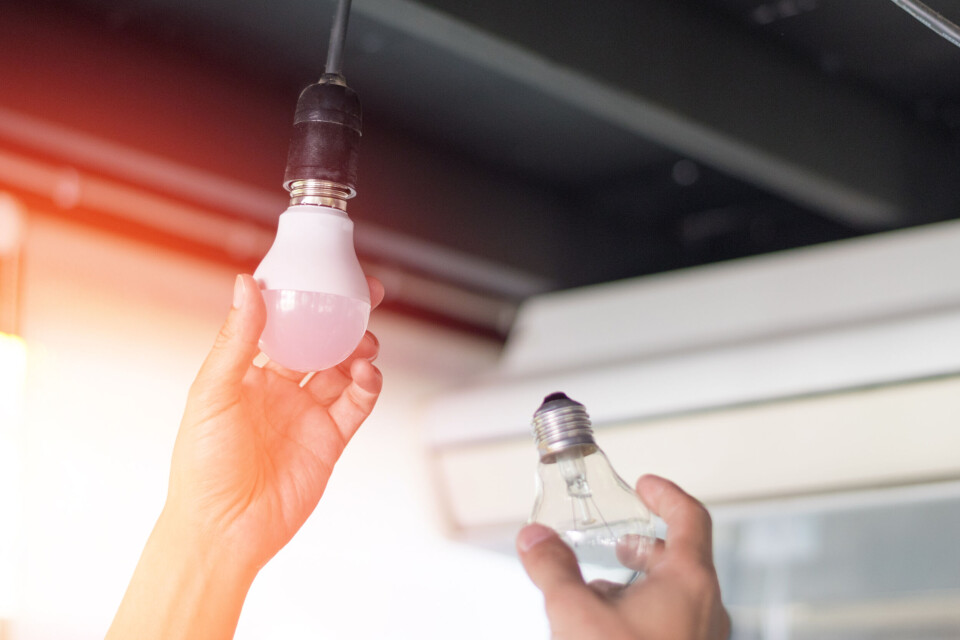-
Britons are the largest foreign community of second-home owners in Nouvelle Aquitaine
See which other departments in the region are popular with British nationals
-
Travellers risk extra costs under new Eurotunnel ticket rule
Some fare options are less flexible and less forgiving of lateness
-
May will be difficult month for train travel in France, warns minister
Two major train unions are threatening to strike and are ‘not willing to negotiate’, he says
People in France urged to reduce energy use in case of Russian cuts
Energy bosses say they are preparing for an ‘unprecedented’ scenario and a possible energy ‘emergency’ next winter. Here are 10 ways to reduce your energy consumption

People in France are being called to reduce their energy consumption to ensure stocks remain high enough to cope in the event of a Russian supply disruption.
Laurence Poirier-Dietz, director of distribution network la gestionnaire du réseau de distribution (GDRF), told Les Echos: “It is important that everyone in France acts now by slightly turning down their heating and taking showers rather than baths.”
She added that if all households turned their heating down by one degree, to 20C from 21C, and turned down the heating at night or when they are away from home, the country could save 10 to 15 terawatt hours of gas over the winter period.
She said: “This corresponds to a reduction of around 10% in consumption.”
The network is working to avoid gas being cut off from some of its biggest clients in the event of disruption in supply from Russia, due to the war in Ukraine.
Ms Poirier-Dietz said: “Gas flows from Russia are continuing to arrive in France normally right now, and the end of the cold season is approaching.
“However, real questions are arising for next winter, in the event of a total or partial interruption of Russian gas imports. We are preparing for this scenario, which would be unprecedented.”
The director called on the government to promote the development of biogas, “which could provide 20% of our consumption in 2030”.
It comes as the energy regulation commission la Commission de régulation de l'énergie (CRE) also advised people in France to reduce energy use to protect stocks for next winter.
Jean-François Carenco, president of the CRE, said: “We need to save gas and electricity in France now, otherwise it could be bad next winter.
He called on “businesses [and] public buildings, but also each and every one of us, whether by lowering heating, air conditioning or lights. There is an emergency and everyone must do their bit.”
Mr Carenco also called for faster development of a floating LNG (liquefied natural gas) terminal in Le Havre, and for simplified legislation on renewable energy projects.
He said: “There is an urgent need to speed up [development]. The crisis we are going through must show us that the collective interest takes precedence over individual interest.”
France is also currently suffering from a lack of nuclear power after several reactors were shut pending repairs to carbon fissures on the security systems. The CRE estimates that the country’s current nuclear production levels are equivalent to those of 1991, which, it said, was a particularly low year.
10 tips to reduce energy use and cost
-
Check energy certificates on new items. The difference between steps (e.g. B to A) can represent as much as a 15-20% electricity saving.
-
Turn off standby. Devices connected to the internet or data can still use 2W of electricity even on standby. Turning this off can save up to 10% on your electricity bill. Avoid turning off washing machines or dishwashers, however, as standby mode on these machines is often used to detect leaks.
-
Set your boiler to 60C. Keeping your water heater between 55-60C can help, as can limiting your use of hot water in general, such as washing clothes on a lower setting.
-
Turn your heating down by 1C. This can save up to 7% in heating bills. Not all rooms need to be at the same temperature; those you are using should be between 19-20C, or 17C for bedrooms, the ADEME states.
-
Keep your home cool without air conditioning. Aircon units use a huge amount of energy. Instead, in summer, keep windows and shutters closed during the day, and open them at night.
-
Insulate pipes and hot water tanks. Wrapping them with insulation can prevent heat loss, especially if the tank is installed in an unheated area such as the garage.
-
Keep heating units well-maintained. Regular services can save 8-12% in energy costs, with each service costing 120 on average. Since 2009, annual services have been mandatory for boilers with a nominal power of 4-400kW.
-
Use LED lightbulbs. Although more expensive to buy than regular light bulbs, LEDs last for much longer (up to 40,000h), and consume a lot less electricity once installed.
-
Invest in a more economic heating system. Heat pumps (PAC) produce much more energy than they consume, and can reduce your energy use by more than 35%. However, they are expensive upfront, at €5,000-€20,000 (although the state can cover 95% depending on your situation). Stoves that use wood can also reduce energy use, and wood is a renewable fuel.
-
Improve your home’s insulation. Ensuring you have effective insulation before installing a new boiler can significantly reduce energy use and cost. Ensuring the walls, roof and windows offer sufficient insulation can cut bills by as much as half.
Related articles
Why do my French electricity bills keep rising despite competition?
Fuel, energy cheques, cold calls: 14 changes for residents in April
EDF bosses and staff oppose 'crippling' electricity bill cap in France
Regulated prices keep France's electricity cheaper than EU neighbours
























